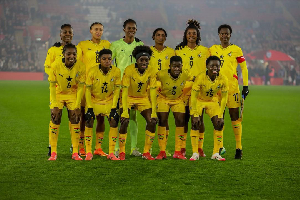Lake Bosomtwe, the pride of Ashanti as the largest natural lake in West Africa and a vital geological heritage site, is reported to be in danger of pollution.
According to geological expects, the Lake, with about 23 communities dotted around it, is registering a decreasing quality largely through pollutants.
The crater lake, one of the country’s major ecotourism attraction centres, is believed to have been formed many years ago by a meteorite impact that affected the rocks surrounding it.
The Geological Survey Department explains that because the Lake is in a hydrological closed basin, all pollutants are bound to remain in it, with concentrations certain to increase in the future.
In fact, Dr Daniel Boamah of the department has cautioned that the decreasing quality of the Lake could be a possible end to ecotourism development in the Lake Bosumtwe Basin.
He has consequently recommended that mining activities and all forms of encroachment, including farming using fertilizers within the Lake’s buffer zone, be totally discouraged.
Commenting on the development, Nana Kwabena Dwomoh-Sarpong, president of Friends of Rivers and Water Bodies (FRWB), an environmental non-governmental organisation, has called for positive steps by the Ministry of Tourism and other relevant bodies to conserve and protect the Lake which also serves as a source of drinking water, economic livelihood and means of transport for its surrounding communities.
He told the Times in a chat here at the weekend that though the country was blessed with many geological and hydrological ecotourism sites, very little or nothing at all had been done to tap their full potentials.
Nana Dwomoh-Sarpong said FRWB, as its contribution towards the conservation and protection of the Lake, planted some economic trees notably coconut and citrus on its shores in 1996, a move which has been emulated by some countries and was showcased at the Kyoto conference on environment.
He deplored the seeming lack of interest of key personalities in the country in the agenda of protecting and conserving water bodies in particular and the environment in general.
He cited the invaluable support of the Royal Families of Sweden and the Netherlands towards the protection and conservation of water bodies in their countries as an example wealthy of emulation by Ghanaian and African Leaders.
“Water conservation and protection”, Nana Dwomoh-Sarpong pointed out, “must be by all and for all the people
General News of Friday, 20 March 2009
Source: Times












